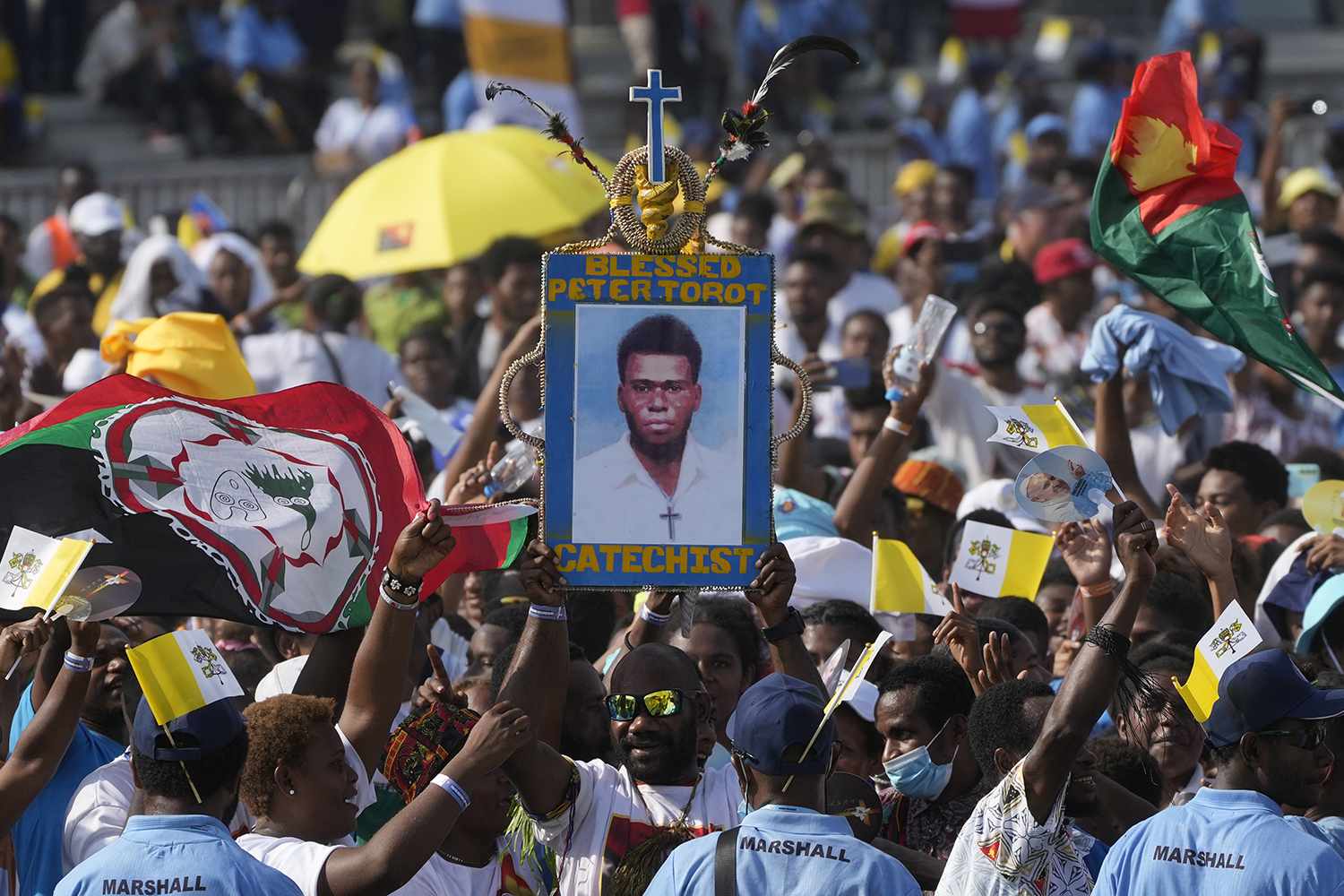Joaquim Magalhães de Castro
Present in Indonesia since the arrival of Portuguese merchants and missionaries in the 16th century, Christianity has inevitably, over the centuries, adapted to local customs in an intricate process of acculturation. The diverse Christmas traditions on the numerous islands of the archipelago are an example of this. That is: Christians do not celebrate Christmas in the same way as each other.
In northern Sumatra, for example, the Batak people, who inhabit the villages around the magnificent Lake Toba, perpetuate a tradition called marbinda. This involves the sacrifice of animals – cows, buffaloes or pigs – bought by the most financially able and whose meat is distributed by the community, especially among the most needy. This custom intends to strengthen community and kinship ties, in addition to providing a moment of joint celebration of the joys of Christmas. The Batak designate kinship from sa sada hudon, that is, ‘being able to taste food from the same table’.
Moving on to Java. Despite its profoundly urban character, there are those in Jakarta who keep the Christmas tradition alive. This is the case of the Portuguese-descendant community in the Tugu neighborhood, which marks the festivity with a ritual procession called rabo-rabo. This begins in the nearest church, after the Eucharist, followed by a very lively procession, as the faithful sing and dance to the sound of Kerocong music all the way. After the procession, the faithful visit each other’s homes, taking advantage of the opportunity to find out about the state of health of their neighbors and, in true Christian spirit, ask for forgiveness from those who have been offended. This is the result of the fusion of Portuguese and Betawi traditions – an ethnic group resulting from the miscegenation of people from various origins.
In Java, more precisely in its heart – Yogjakarta – the so-called cultural capital, instead of traditional shadow puppet shows with the usual legends of the Mahabharata and Ramayana, local Christians are entertained through the same theatrical form with biblical narratives. This peculiar type of artistic expression, very popular among Christian Javanese, is called wayang wahyu. And for characters, we have the great figures of Christianity, including Jesus Christ himself. The wayang wahyu was created in 1959, in Surakarta, by the Dutch missionary Timotheus L. Wignyosoebroto. The inspiration came to him years before when he saw a shadow puppet show that portrayed an episode from the Old Testament. Even today, Wayang Wahyu plays are performed in various churches in Central Java during the Christmas period.
In Bali, in addition to Christmas trees, local Christians decorate the outside of their homes with the traditional penjor: a long bamboo decorated with palm leaves bent over the road. The penjor, a Balinese symbol par excellence, represents well-being and prosperity. There is also the communal tradition of ngejot (practiced as well by Muslims and Hindus) which consists of offering homemade food to neighbors, friends and family as a form of gratitude, thus highlighting the importance of religious tolerance.
In the north of Celebes, among members of the mostly Christian community of Minahasan, Christmas celebrations begin in the first days of December inside the many churches of Manado, the most important city. At this time, believers visit cemeteries to honor deceased relatives and decorate their graves with flowers, candles and lamps. This tradition, called kunci taon, usually ends the Christmas celebrations, and is followed by a parade in which participants wear curious costumes alluding to the Christmas season.
In welcoming the birth of Jesus Christ, the inhabitants of the island of Flores – where Catholicism predominates – add to the traditional celebrations the habit of shooting the meriam bambu, that is, “bamboo cannon”. It is one more of the numerous customs that evoke the passage of the Portuguese in the archipelago. In truth, the meriam bambu is just one of many forms of fireworks displays. The gunpowder is inserted into a small hole at one end of a bamboo cane, which acts as a cannon.
In the province of Irian Jaya, the Papuans observe their bakar batu at Christmas, an ancestral custom intended to express gratitude and the need to share. On that day, before mass, local Christians cook pork with sweet potatoes, cabbage, papaya and other ingredients with the help of a mound of previously heated stones. Outside the Christmas context, this peculiar culinary habit serves to honor the visits of the highest personalities to the villages.
(Photo: Joaquim Magalhães de Castro)


 Follow
Follow


